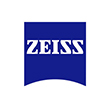Friday, April 24 to Saturday, April 25, 2015
Costa Mesa, CA
https://vitallinkoc.org/youth/special-programs
Monday, October 19 to Thursday, October 22, 2015
Capture 3D, Farmington Hills, MI
Link to Training Course Info
Monday, July 13 to Thursday, July 17, 2015
Capture 3D, Farmington Hills, MI
Link to Training Course Info
Monday, April 20 to Thursday, April 24, 2015
Capture 3D, Farmington Hills, MI
Link to Training Course Info
Monday, February 2 to Thursday, February 5, 2015
Capture 3D, Farmington Hills, MI
Link to Training Course Info
Thursday, March 19 to Friday, March 20, 2015
Anaheim, CA
Booth 305
https://msc-conf.com/
Monday, March 23 to Wednesday, March 25, 2015
San Diego, CA
https://www.gorham-tech.com/
To reduce weight and fuel consumption, the aerospace industry increasingly relies on lightweight materials and new material combinations. That’s why the entire fuselage of the Airbus A350 XWB consists of carbon fiber composite (CFC) materials. In total, the long-haul aircraft reaches a CFC portion of 53%. In addition, Airbus uses materials such as titanium and new aluminum alloys. As a result, the A350 consumes about one quarter less fuel than conventionally constructed aircrafts and environmentally harmful CO2 emissions are reduced correspondingly.
In the mobile phone market it is crucial that a newly developed model gets fast to market. Therefore, reliable suppliers are needed who are able to produce good quality parts, modules or complete systems in large quantities at short notice. The common practice to ensure that the quality of the delivered parts meets the expectations is to inspect and approve the first parts which are produced under real production conditions (First Article Inspection). In this process, the actually produced parts, the material, the molds and the injection conditions are verified and accepted from both parties.

